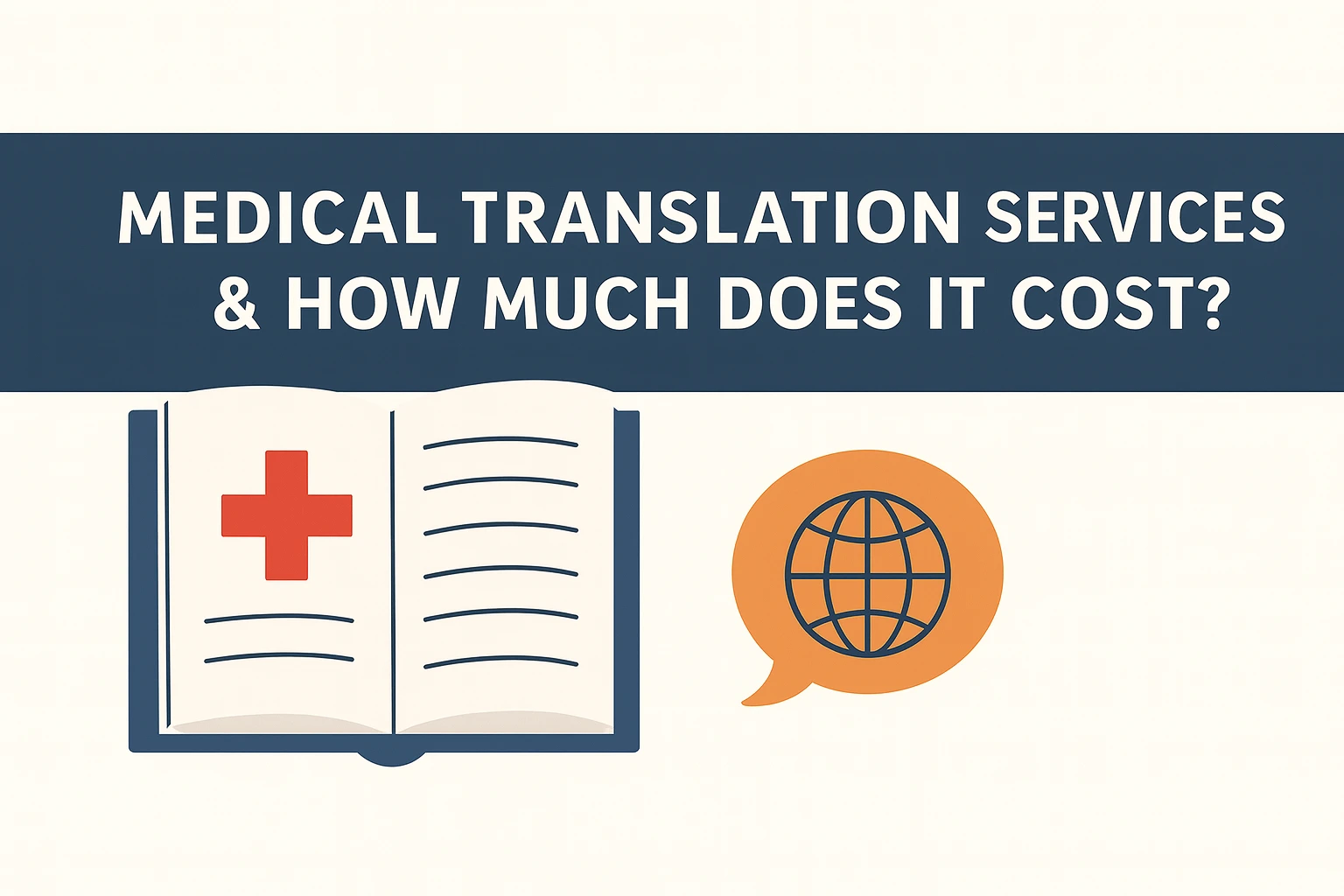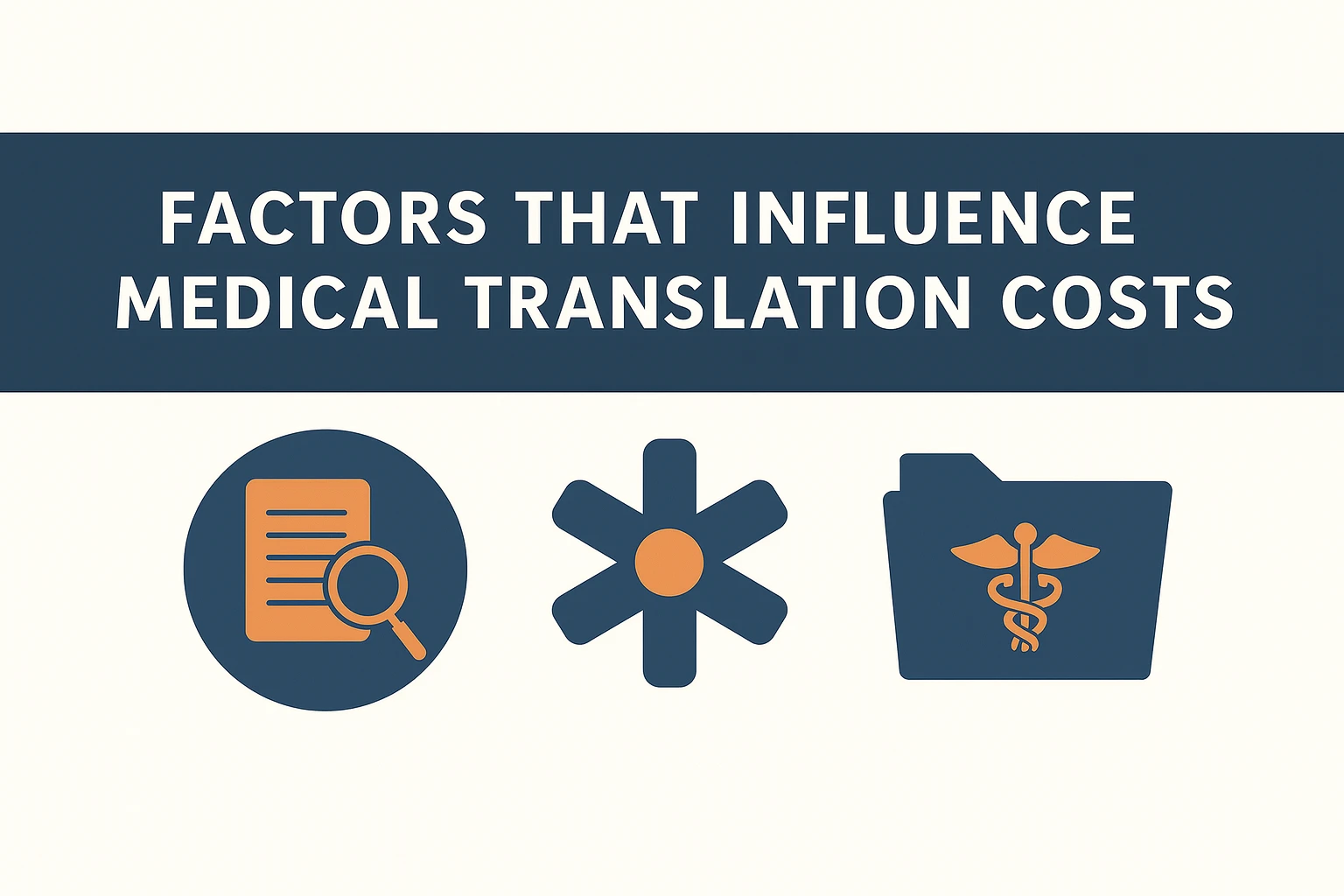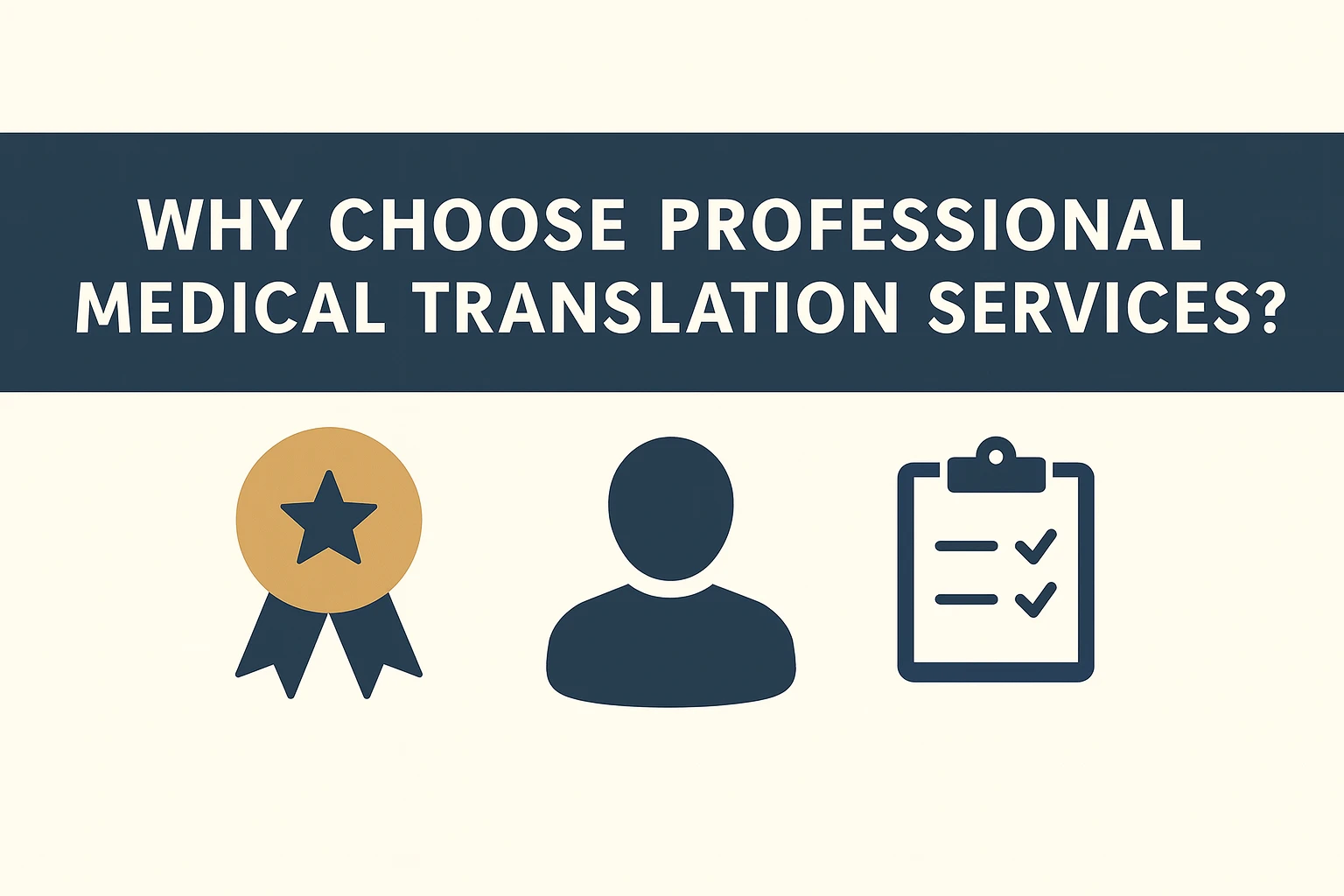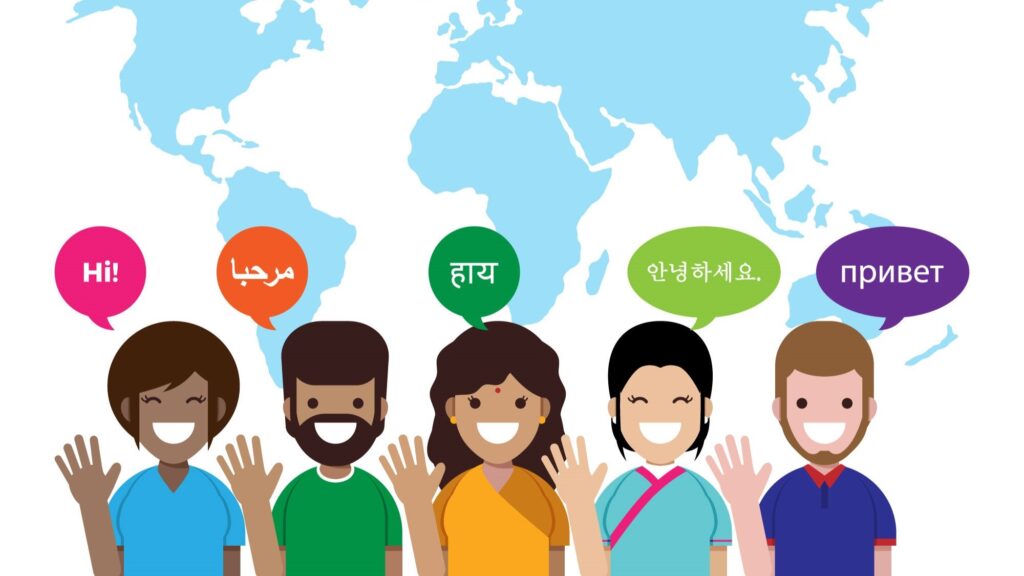
In today’s global healthcare industry, accurate medical communication is essential. From clinical trial documents and drug labels to patient information leaflets, every word can impact patient safety and regulatory compliance. That’s why medical translation services play a critical role — ensuring that complex healthcare content is translated accurately, maintaining both medical precision and cultural sensitivity.
However, one common question among healthcare providers, pharmaceutical companies, and researchers is: “How much do medical translation services cost?”
Let’s explore what influences these costs and how to make the right investment for quality and accuracy.
What Are Medical Translation Services?
Medical translation services involve translating healthcare and life-science materials — such as medical device manuals, patient records, clinical research reports, and pharmaceutical documentation — from one language to another while preserving the technical, scientific, and regulatory accuracy of the original content.
These services require highly skilled linguists with backgrounds in medicine, biotechnology, or pharmaceuticals who understand not just the language but also the scientific terminology behind it. A single mistranslation in this field can lead to miscommunication, legal issues, or even endanger patients.
Why Are Medical Translations So Complex?
Medical translation isn’t just about converting words — it’s about translating knowledge. Translators must ensure the correct use of medical terminology, Latin root words, chemical names, and drug classifications. Additionally, the translated content must comply with the target country’s regulatory standards, such as the U.S. FDA, EMA (Europe), or CDSCO (India).
This level of detail makes medical translation one of the most specialized — and therefore more costly — areas of the translation industry.
Factors That Influence Medical Translation Costs

The cost of medical translation services varies depending on several factors. Here are the key ones to consider:
1. Language Pair Combination
The language pair (source and target language) significantly impacts pricing. Translating between widely spoken languages like English and Spanish may cost less than between English and Chinese or Arabic.
Languages with complex scripts or fewer qualified translators generally have higher rates due to limited availability of experts.
💡 Example: Translating from English to Mandarin or Japanese may cost 25–30% more than English to French because of linguistic complexity and specialist demand.
2. Complexity and Technicality of Content
Medical documents often contain highly technical data, such as dosage instructions, clinical methodologies, or device specifications.
The more specialized the content, the higher the translation rates, as only certified translators with domain knowledge can ensure accuracy.
If your document includes complex diagrams or scientific terminology, it may also require desktop publishing (DTP) and medical proofreading, which can add to the overall cost.
3. Word Count and Document Volume
Most translation agencies charge per source word, meaning the cost depends on the number of words in the original text.
The average medical translator can translate 1,500–2,000 words per day, depending on complexity.
Typical pricing ranges:
- European languages: $0.12 – $0.20 per word
- Asian & Middle Eastern languages: $0.15 – $0.25 per word
Larger projects may receive volume-based discounts, while smaller, urgent jobs might incur additional fees.
4. Turnaround Time (Urgency)
If your translation is urgent — for instance, a clinical trial submission with a tight deadline — agencies may assign multiple translators to work simultaneously.
This accelerates the process but also increases the rush fee, especially for weekend or holiday work.
To minimize costs, it’s best to plan translations in advance whenever possible.
5. Additional Services
Medical translations often require more than text conversion. You might need:
- Proofreading and quality assurance by a second linguist
- Formatting or DTP adjustments for charts and reports
- Glossary or terminology management
- Certified translation for regulatory submission
Each of these services adds value — but also affects the final quote. Always confirm what’s included before approving your project.
How to Estimate the Cost of Your Medical Translation
While every project is unique, you can get a reliable estimate by considering:
- Source language and target language
- Word count or page count
- Document type (regulatory, academic, marketing, etc.)
- Deadline flexibility
- Quality level required (standard, reviewed, or certified)
A professional agency like VerboLabs Languages provides transparent pricing, detailed quotes, and customized packages tailored to your specific needs — ensuring you get both accuracy and value.
Why Choose Professional Medical Translation Services?

Choosing a professional medical translation partner isn’t just about cost — it’s about accuracy, compliance, and patient safety.
Here’s why you should invest in experts like VerboLabs:
- Translators with medical and pharmaceutical backgrounds
- Compliance with ISO-certified quality standards
- Multi-layered review and proofreading processes
- Expertise in clinical trials, labeling, and regulatory documentation
- Support for 120+ global languages
Conclusion
Medical translation is a critical process that ensures safe, compliant, and effective communication in global healthcare. While the cost of translation services varies based on language, complexity, and urgency, the value they bring in terms of accuracy and patient trust is immeasurable.
When it comes to translating sensitive medical information, always choose expertise over low pricing.
Ensure accurate, reliable, and cost-effective medical translations with VerboLabs.
Our certified linguists deliver precision and clarity for even the most complex healthcare documents.

Contact VerboLabs today to get a free quote for your next medical translation project.




Comments are closed.